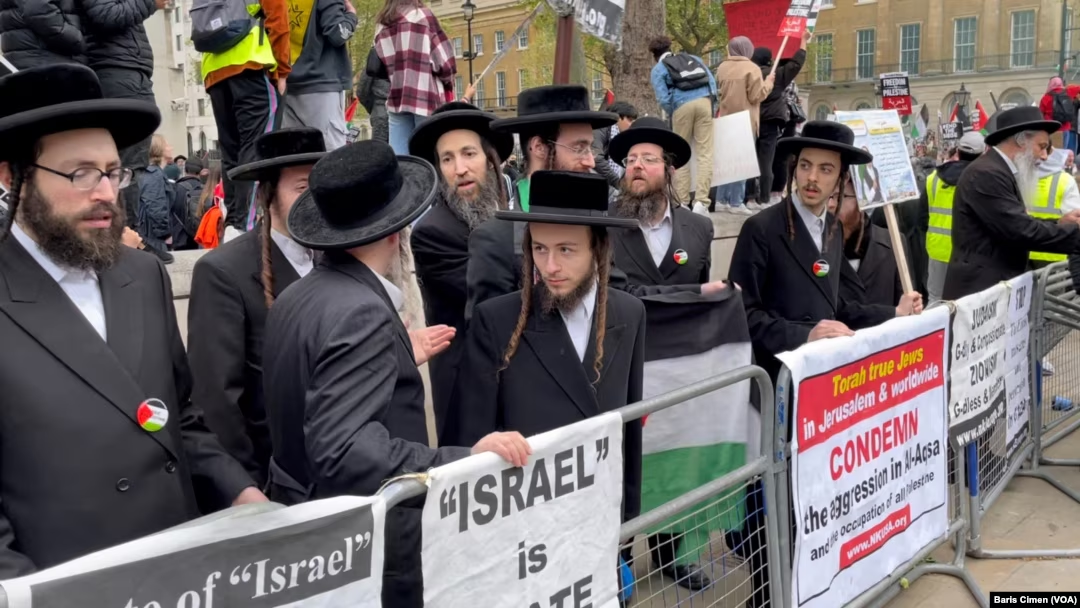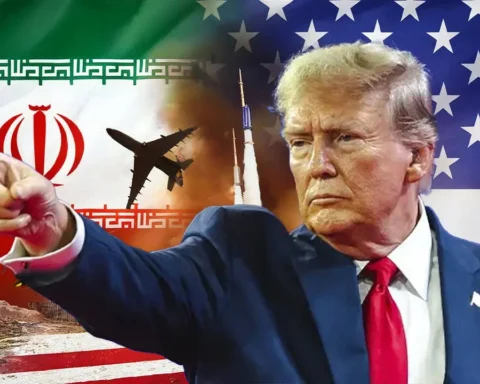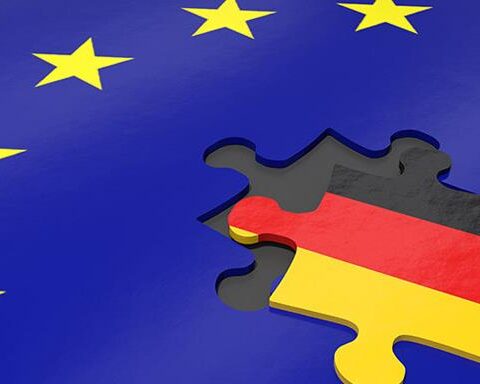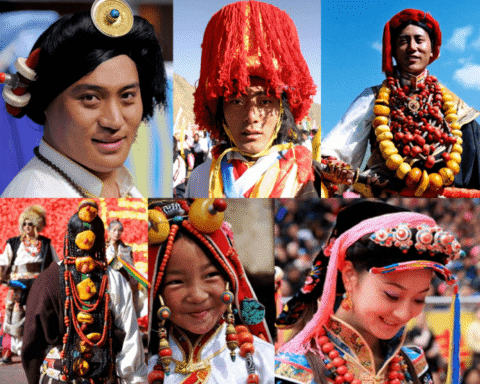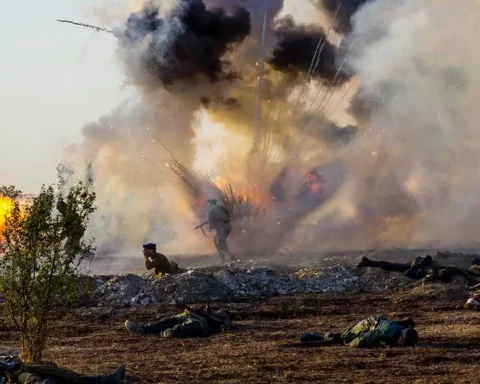The shared experience of genocide should unite, not divide, Jews and Palestinians, say two activists
“Do you hate all Jews?” It’s something the 25-year old UK-based Palestinian journalist Yara Eid gets asked not infrequently. She finds the query both understandable and exasperating.
But Eid also knows it’s the wrong question. Palestinians and Jews have far more in common than what separates them, Eid noted, as she sat side-by-side with Jewish Holocaust survivor, Stephen Kapos, during a discussion about genocide held recently at London’s School of Oriental and African Studies.
Eid lost at least 60 family members along with her best friend in just the first two months of Israel’s current brutal attack on Gaza. And as Israel now escalates its violence, intent on achieving what has long been the obvious goal — the seizure of all land in Gaza leading effectively to the erasure of the entire Palestinian population — Eid, like the Jews of the Nazi Holocaust, could be looking at a family tree pruned of all its branches.
“Every time I listen to Stephen and the stories he tells, I can totally resonate with them,” Eid said. “We grew up in two different worlds, very different, but if you look closer, we’re actually very similar. What we share is the repression as well as the resistance.”
Kapos, born in Hungary and now 87, lost 15 family members of his own during the Holocaust, but was hidden on false papers in a school for boys, all of them Jews. Today he is the “poster boy” of the pro-Palestine protests in London where he is frequently seen at the front of the march with a sign hanging around his neck that reads: “This Holocaust survivor says stop the genocide in Gaza.”
For Kapos, denouncing the Gaza genocide is a moral imperative. As he has repeated at almost every interview, “the way that the Israeli government is using the memory of the Holocaust in order to justify what they’re doing to the Gazans is a complete insult to the memory of the Holocaust.”
With more than six decades separating them, Kapos and Eid find themselves bound together as witnesses to two separate genocides, an experience that obliges them to redefine the word. A genocide is not just about those killed, they say, it’s also about the trauma of those who survive.
Kapos says he was too young when he went into hiding to fully understand the trauma of what was happening to Jews. But he saw it in others. Kapos recalled a boy at his home who had been taken in a group with his mother to the banks of the Danube “and shot straight into the river by the fascists,” Kapos said.
“He was holding his mother’s hand and the mother sank right beside him.” The boy was only wounded and eventually scrambled ashore downstream where he was rescued by strangers. “He was very very nervous and obviously traumatized by this experience,” Kapos recalled.
Another boy, riding with his parents in a crowded tram in Budapest, had moved forward to watch the driver at work when fascists came on board demanding papers. His parents, identified as Jews, were arrested.
“In that instant the parents had to make a decision whether to make contact with their son or part without saying goodbye,” Kapos said. They chose the latter, the ultimate act of selfless courage. The parents went to Auschwitz. Their son was rescued and brought to the home, where, said Kapos, he manifested “the extremities of the Holocaust experience.”
Eid recounted how she suffered a breakdown as a result of Israel’s attack on Gaza in 2014. She was living in the Bureij refugee camp in central Gaza at the time. “I was 14. I saw people getting cut into pieces in front of me,” she recalled. “I should have never seen that. I’m still in therapy for that.”
Eid is currently banned for travel to Israel and therefore to Palestine, but recognizes if she could go back “they might kill me, too.” The best friend who was killed in the early weeks of Israel’s attack, was a fellow journalist, one of the groups, like doctors and aid workers, which has been deliberately targeted by Israeli forces.
The shared traumas are what bind Jews and Palestinians together, or should. And in the many protests that have erupted since Israel began its brutal attack on Gaza in October 2023, we have seen it. In the US, some of the most outspoken opposition to the Gaza genocide has come from Jewish Voice for Peace, whose members have swarmed Wall Street and Trump Tower in New York and who willingly face arrest.
Similarly, in the UK, an alliance calling itself the Jewish Bloc is omnipresent at the pro-Palestine marches around the country. To them, to cite the Holocaust as an excuse to conduct another genocide against others, is unconscionable and intolerable.
Last year, ten Holocaust survivors signed a letter condemning the invocation of that brutal event as if it somehow justifies the present day version being carried out by Israel in Gaza. “In our opinion, to use the memory of the Holocaust like this to justify either genocide in Gaza or repression on college campuses is a complete insult to the memory of the Holocaust,” they wrote.
But in late April a judge in Germany convicted a pro-Palestine activist for holding a sign that asked “Have we learned nothing from the Holocaust?”, ruling that she had incited hatred and that her sign “trivialized” the Holocaust. Other pro-Palestine protesters in Germany have been brutalized by police using a level of violence reminiscent of the Gestapo and SS.
Mohsen Mahdawi, the Palestinian student at New York’s Columbia university who was arrested and then released as he awaits deportation hearings, held regular meetings with Israeli students there where the group tried to navigate a path to peace amongst themselves and their nations. One of the Israeli students who attended, Josh Drill, recalled how they would have “intense discussions, sharing our personal traumas, healing together, envisioning a peaceful future and what our place in that is.”
But that’s who we are arresting, the peacemakers like Mahdawi and Kapos, who was also called in for questioning by police after the January 18 pro-Palestine march in London. When empathy is erased, autocracy prevails.
Kapos felt that intensely when he visited an exhibition, Letters from Gaza, at a London art gallery. As he read the hopes and fears expressed by the Palestinians writers, many of them children, he was struck, he said, by “how similar their concerns were, just as it was for us during the Holocaust.”
Source: https://www.counterpunch.org/2025/05/20/the-trauma-of-survival/

